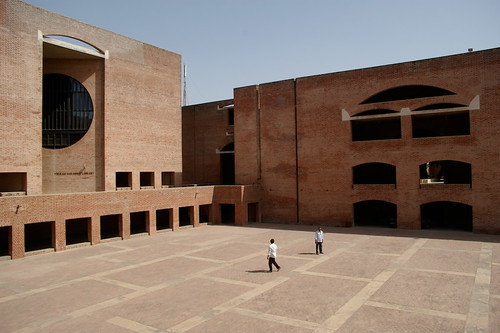Jugaad Redux
May 18, 2010 Leave a comment
Yes, gentle readers. The inevitable has happened.
As I had stated earlier, Jugaad is well on it’s way to respectability as a business word. Now, seemingly more business school professors have joined the “India improvises through jugaad” bandwagon. Another article in the Harvard Business Review blog post talks about this. And, I shiver to think about it, a full business book is on its way. What other banalities will be rediscovered, reposted, and repackaged as Indian wisdom?
And now, we quote.
Both sets of business leaders, Indian and American, preside over demanding worlds, both bring a vision of where they want to take their enterprise, both are called on to make timely decisions, and both use much the same skill set. But at the same time, American and Indian executives have evolved distinct approaches to their positions — critical leadership distinctions that, in India’s case, have helped the nation’s businesses thrive. As ICICI Bank chief executive K. V. Kamath summed up, “Time and again it has been proved that the Western model of doing business would not be a success here.”
The blog post on HBR’s site is actually quite an interesting read. I’d recommend going there to check it out. The post, and presumably the book, talks about four distinctive Indian business capabilities. Out here you’re likely to find our insider’s view take on it.
Now, if you know the Indian CEOs, they were born and raised on the same educational and competitive environment as the rest of my MBA batch. We answer test questions perfectly! That’s how Indian beauty queens had once cornered the Miss World and Miss Universe market. We have cute little black books (dainty, in the case of beauty queens), and we compile all the previous questions. Then, we ask what worked the last time, and remember the answers. Desi ingenuity, I suppose. In the US, this is called “teach to the test”, and boy! are desis good at this concept.
Back to the post on HBR, the authors talk about the four distinctive Indian business capabilities. You should read that post to get the “official answer”. In here, the real-world answers will be speculated.
1. Holistic engagement with employees. OFFICIALLY: “People are viewed as assets to be developed, not costs to be reduced; ” PRACTICALLY: “The guy who said that official quote was actually right. He was cooking the books of his company by showing more employees, and therefore more revenues. In his case, people were assets. He’s..er…in jail now. Truth prevailed, somehow!” (Editors note: Satyam means truth.)
2. Improvisation and adaptability. OFFICIALLY: “In a complex, often volatile environment with few resources and much red tape, business leaders have learned to rely on their wits to circumvent the innumerable hurdles they recurrently confront.” PRACTICALLY:”Psst…Boss, meet me after this interview, and we can talk about how *green* tape can cover red tape real quickly”.
3. Creative value propositions. OFFICIALLY:” …Indian business leaders are inventing entirely new product and service concepts to satisfy the needs of demanding consumers and to do so with extreme frugality”. PRACTICALLY:”We sell what people want to pay for. If they will pay more if only we make it sound cheaper, so be it!”
4. Broad mission and purpose. OFFICIALLY:”…Indian business leaders stress broader societal purpose. They take pride in company success — but also in family prosperity, regional advancement, and national renaissance.” PRACTICALLY: “We’ve done the same thing for decades. Thank god for western academics. What used to be called nepotism and regionalism is called ‘family prosperity and aha!, regional advancement’. Very nice people, these Professors!”
Cheers

Comments